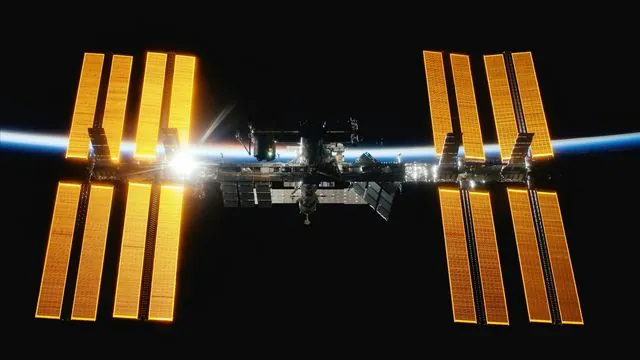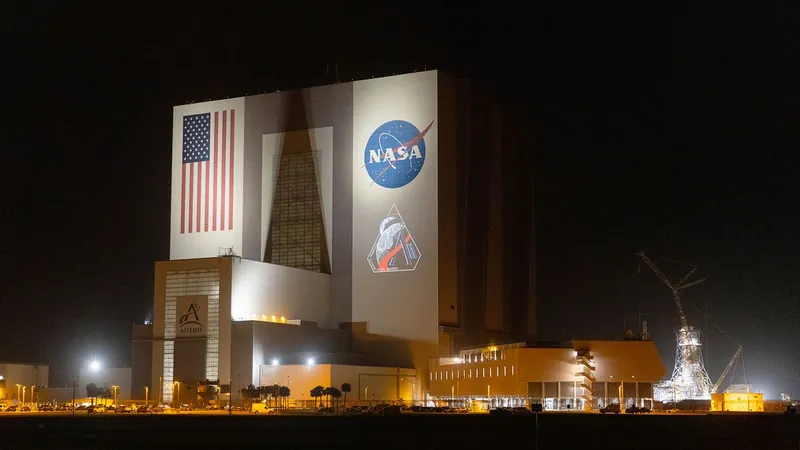
Groundbreaking Space Research Could Revolutionize Heart Disease Treatment!
2025-03-31
Author: Siti
Introduction
Heart disease continues to reign as the leading cause of death in the United States, claiming the lives of one in five individuals. With the heart's muscle tissue struggling to regenerate after damage, treating this condition proves to be a formidable challenge. For patients in the advanced stages of heart failure, the only hope may often lie in waiting for a heart transplant—a long and uncertain journey. But researchers at Emory University are pioneering new alternatives that offer hope for the future.
Research in Microgravity
Taking their groundbreaking research to an out-of-this-world laboratory—the International Space Station (ISS)—Dr. Chunhui Xu and her dedicated team are leveraging this unique environment to advance cell-based regenerative therapies that could potentially reverse heart damage. Their remarkable findings have already led to several peer-reviewed publications, with their latest breakthrough highlighted in the prestigious journal *Biomaterials*.
Inspiration and Hypothesis
The inspiration for this innovative research arose from an unexpected discovery about cancer cells observed during spaceflight: their proliferation and survival rate increased in microgravity. This revelation sparked a hypothesis in Xu's mind: could heart cells exhibit similar properties? If proved correct, this finding could break down two major barriers currently hindering the development of effective therapies for heart disease.
Experiments Aboard the ISS
Following successful ground-based simulations of microgravity, Xu and her team launched two pivotal experiments aboard the ISS. The first focused on how stem cells differentiate into heart muscle cells, while the second investigated the maturation of these cells into complex tissue-like structures. The insights gleaned from their investigations could usher in a new era for the production of cardiac cells intended for regenerative medicine, potentially transforming treatment methods for countless patients suffering from heart conditions.
Potential Impact of the Research
“The space environment provides an amazing opportunity for us to study cells in new ways. Our research on the ISS could allow us to develop a new strategy to generate cardiac cells more efficiently with improved survival when transplanted into damaged heart tissue,” Xu explains. This innovation holds the promise of significantly enhancing the lives of patients battling heart disease back on Earth.
Conclusion
As researchers continue their work in this unprecedented setting, the possibility of moving beyond traditional heart disease treatments and discovering groundbreaking cell-based therapies becomes more tangible. With each experiment in orbit, the battle against heart disease takes a significant step toward unlocking the potential of regenerative medicine. This remarkable journey into space could ultimately reshape the future of heart health for millions worldwide.
Stay tuned as we follow Dr. Xu and her team on this thrilling adventure—and witness how their discoveries could pave the way for revolutionary advances in cardiac care!




 Brasil (PT)
Brasil (PT)
 Canada (EN)
Canada (EN)
 Chile (ES)
Chile (ES)
 Česko (CS)
Česko (CS)
 대한민국 (KO)
대한민국 (KO)
 España (ES)
España (ES)
 France (FR)
France (FR)
 Hong Kong (EN)
Hong Kong (EN)
 Italia (IT)
Italia (IT)
 日本 (JA)
日本 (JA)
 Magyarország (HU)
Magyarország (HU)
 Norge (NO)
Norge (NO)
 Polska (PL)
Polska (PL)
 Schweiz (DE)
Schweiz (DE)
 Singapore (EN)
Singapore (EN)
 Sverige (SV)
Sverige (SV)
 Suomi (FI)
Suomi (FI)
 Türkiye (TR)
Türkiye (TR)
 الإمارات العربية المتحدة (AR)
الإمارات العربية المتحدة (AR)